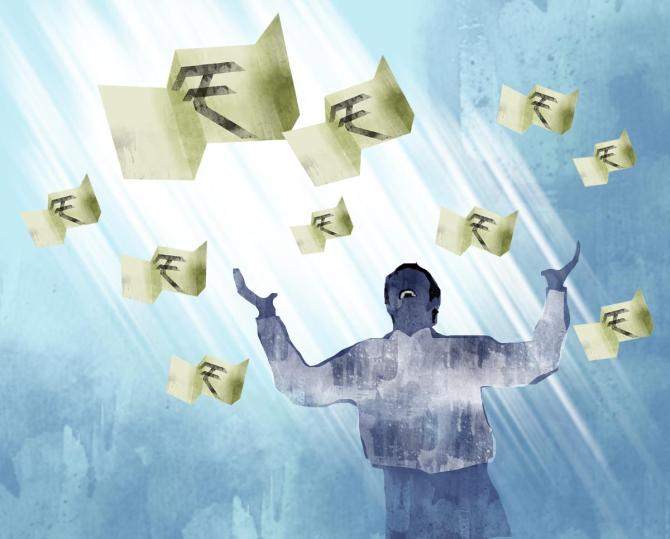Donations to lower tax slab can make taxman see red
The Income-Tax (I-T) department has issued around 8,000 notices to salaried employees, self-employed individuals, and companies who made significant donations to charitable trusts.
The department suspects potential tax evasion, as records of these donations do not correspond with the income and expenses of those making them.
Sandeep Bajaj, managing partner, PSL Advocates & Solicitors, says, “Notices were issued for donations made during the assessment years of 2017-18 through 2020-21.”
Section 80G of the I-T Act allows deductions from income for donations made to certain funds and charitable institutions.
Bajaj warns that some taxpayers take advantage of this provision by making substantial donations to charitable trusts to lower their taxable income and ultimately reduce the amount of tax they owe.
Modus operandi
One tell-tale sign of attempted fraud is that donations are for exactly the amount required to lower the tax slab or get a full exemption.
Pallav Pradyumn Narang, partner, CNK, says, “The donor pays in cash and gets a receipt.
“The party receiving the money deducts a commission and returns the balance to the donor.”
A variant of this works as follows.
Keshav Singhania, co-leader, Singhania & Co. LLP, explains: “The assessee makes the bogus donations through cheque/RTGS/NEFT.
“This amount is re-routed back in cash (directly or indirectly) net of commission charged by intermediaries.
“The recipient issues a donation receipt, which serves as the basis for claiming the deduction.”
Narang adds that when a salaried person pays an exceptionally high amount to tax professionals, that acts as a red flag for tax authorities.
Suresh Surana, founder, RSM India, informs that fraudulent donors often claim a 100 per cent deduction under Sections 80G, 80GGB, and 80GGC in their I-T returns (ITRs) and may save up to 30 per cent on tax, depending on their slab rates.
However, regulations are becoming tighter now. Charitable trusts must upload a list of their donors, including their permanent account number (PAN) and donation amounts.
Ankit Jain, partner, Ved Jain & Associates, says, “Taxpayers are also required to provide donation-wise details, including PAN of the charitable trust. Mismatches between these details can lead to the issuance of notices.”
Beware penalties
Taxpayers found guilty of tax evasion may face a penalty equal to the amount of tax evaded, along with interest.
They could also face prosecution and imprisonment of up to seven years.
How to respond to a notice
To avoid penalties or legal issues, Bajaj advises individuals to respond to a notice with all the documents that support their claim of having donated to a charitable trust.
If the individual chooses to pursue litigation, Singhania recommends prepaying the contested tax amount and interest to halt the accumulation of further interest under Section 234.
Surana suggests that the individual can alternatively file an updated ITR within 24 months, following the end of the relevant assessment year, along with additional tax.
However, an updated return cannot be filed if search proceedings have been initiated, a survey has been conducted, or specific notices have been issued.
The individual can request copies of documents obtained during a search operation and evidence collected from charitable organisations that led to the notice being issued and respond to these findings.
Points to remember
Donate only to organisations that qualify for tax benefits.
Narang advises individuals to maintain proper documentation, mentioning the donation amount, date, and other details.
Make donations through banking channels only.
Jain explains that donations greater than Rs 2,000 should be made via bank transfer, and a copy of the bank statement reflecting the transfer, the donation receipt, and the certificate in Form 10BE should be retained.
Finally, file your ITR on time and disclose donations in the relevant sections of the ITR form.
Singhania points out that under the new tax regime, deductions for such charitable deductions are not allowed.
Source: Read Full Article


